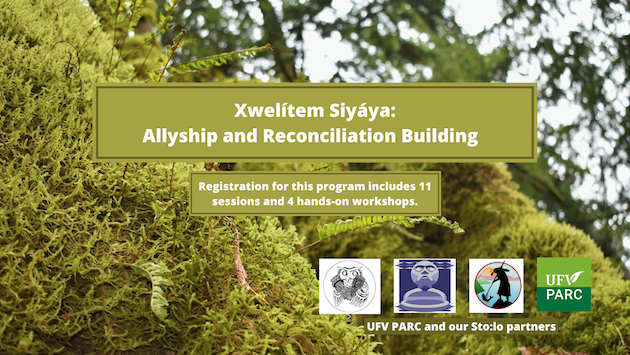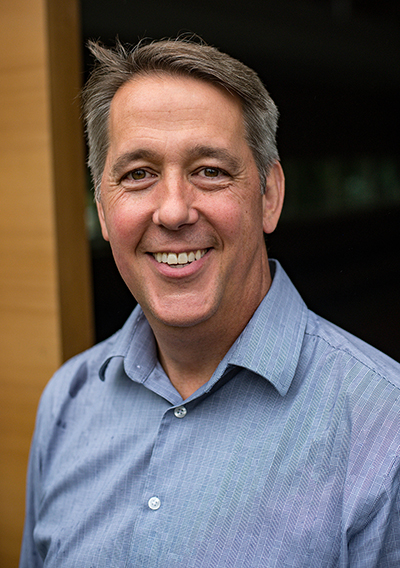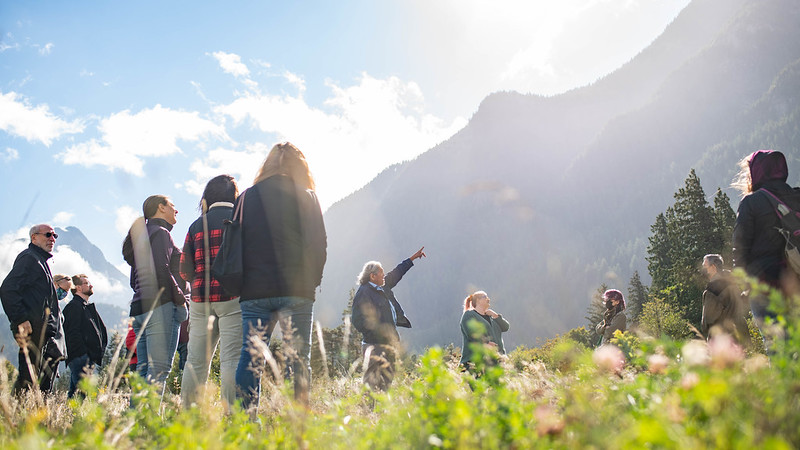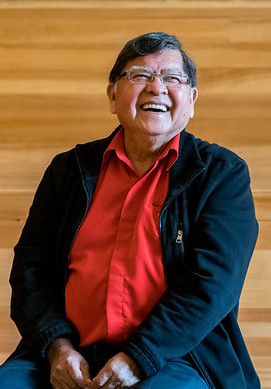UFV launches collaborative reconciliation program in partnership with Stó:lō agencies
 The University of the Fraser Valley is collaborating with a group of Stó:lō agencies to offer an educational program that will help participants enhance their capacity for reconciliation building.
The University of the Fraser Valley is collaborating with a group of Stó:lō agencies to offer an educational program that will help participants enhance their capacity for reconciliation building.
Xwelítem Siyáya: Allyship and Reconciliation Building will be offered by the UFV Peace and Reconciliation Centre (PARC), in partnership with the Stó:lō Nation, the Stó:lō Tribal Council, the Stó:lō Research and Resource Management Centre, and the Stó:lō Grand Chief’s Council.
The part-time, non-credit program is designed for non-Indigenous Canadians who want to learn how to become allies and build reconciliation. It is open to the public and there are no prerequisites. The cost to participants will be $200. You can register for the program via Eventbrite here: https://www.eventbrite.ca/e/xwelitem-siyaya-allyship-and-reconciliation-building-registration-532370844527

Dr. Keith Carlson, the director of UFV’s Peace and Reconciliation Centre and a long-time collaborator with Stó:lō partners, says the program has been in the planning stages for several years but was delayed by the pandemic. He is working in partnership with Stó:lō Grand Chief Clarence ‘Kat’ Pennier and other Stó:lō leaders.
Carlson notes that the initiative came at the request of the Stó:lō leadership.
“This new program is designed in direct response to the Truth and Reconciliation Commission’s calls to action, and in particular to requests by Stó:lō leaders that UFV partner with them to help educate non-Indigenous people about Stó:lō history and culture, and to provide participants with strategies on how they can respectfully play a role in helping to build genuine reconciliation as allies.”
Grand Chief Pennier endorses the program for its potential to enhance understanding, cooperation, and collaboration.
“It is important for us to learn to live together in our territory so that we may learn together to protect the land water and resources for our future generations,” he says.

Sonny McHalsie, Historian & Cultural Advisor for the Stó:lō Research and Resource Management Centre at Stó:lō Nation, is also enthusiastic about the program.
“The Allyship program is important because of the opportunity it provides us to share Stó:lō culture and history with a wide range of people. I see this as an important component of building reconciliation.”
The program seeks to help build people’s capacity for reconciliation-building by teaching the importance of authentic allyship and providing skills for building relationships between colonial settlers and Indigenous communities in the Fraser Valley and beyond.
It will run from February 28 to mid-December and will consist of a mixture of presentations, workshops, and hands-on land-based learning opportunities, where participants will be guided in developing the knowledge and empathy necessary for becoming effective and respectful allies to local Indigenous communities.
Registered participants will be required to attend 11 lecture presentations and four interactive workshops where they will learn about Stó:lō people’s relationship to the lands and waters of this region. There will also be a variety of optional workshops that participants can register for, for an additional cost. After completing the program, participants will have developed a deeper understanding of what it means to be an ally, and how to embrace the goal of being in a constant state of learning and unlearning, relationship building, and transformative action.

Topics will include lands and resources, settler colonialism, governance, assimilation and residential schools, and culture and spirituality. Required and optional workshops will include drum making, cedar bark weaving, placename tours, introductions to the Halq’eméylem language, introductions to Chinook jargon, and other land-based learning experiences.
The lecture sessions will run on the fourth Tuesday of each month from 6 to 8 pm (with some possible variations to schedule based on speaker availability). Workshops will be held on a monthly basis. The workshops will be held in various places between Abbotsford, Chilliwack, and Mission. The initial session on February 28 will take place at UFV’s Gathering Place on the Chilliwack campus.
Program presenters and workshop instructors will include:
- Naxaxalhts’i (aka Sonny McHalsie, Historian & Cultural Advisor, Stó:lō Research and Resource Management Centre at Stó:lō Nation)
- Prof. Keith Thor Carlson (Director, Peace and Reconciliation Centre)
- Dave Schaepe (Director & Senior Archaeologist of the Stó:lō Research and Resource Management Centre at Stó:lō Nation)
- Denise Douglas (Elder and Knowledge Keeper)
- Dianna Kay (Halq’eméylem Language Teacher and Knowledge Keeper)
- Gracie Kelly (Knowledge Keeper and cedar bark weaving workshop leader)
- Murray Ned (Executive Director, Lower Fraser Fisheries Alliance)
- Carol Peters (Knowledge Keeper and traditional plant workshop leader).
Carlson notes that UFV is trying to lift some of the burdens of educating settlers about Indigenous rights, culture, and the impacts of colonialism, from Stó:lō leaders and organizations.
“This new program is designed in response to the many inquiries we receive from settlers who want to learn more about the Stó:lō people and to develop competencies in allyship,” Carlson notes. “But even more, it is in response to requests from Stó:lō leaders and educators who have indicated that their primary focus needs to be on providing programs and capacity-building opportunities to their own community members. In launching this program, we are collaborating with Stó:lō leaders in a way that helps lay the foundations for genuine reconciliation while alleviating Indigenous people of the weight of having to deliver such programs themselves.”
For more information and updates, check www.ufv.ca/peace-and-reconciliation/. If you have any further questions, please contact Holly Janzen of UFV PARC at holly.janzen@ufv.ca.




